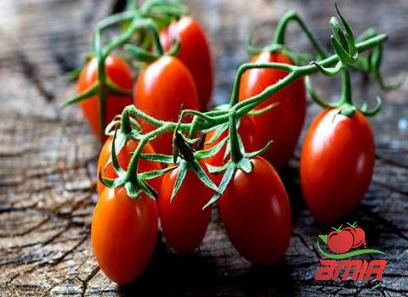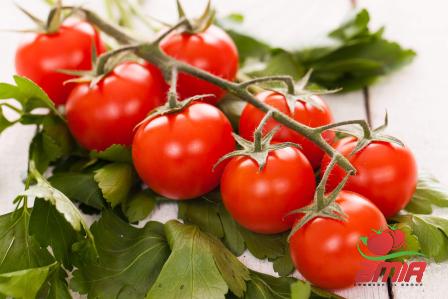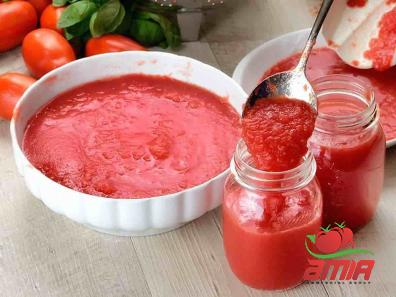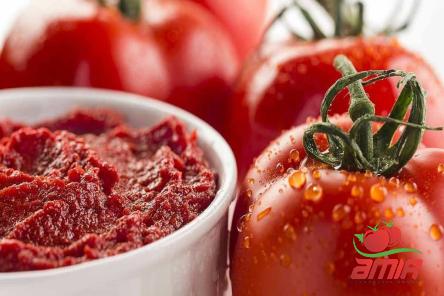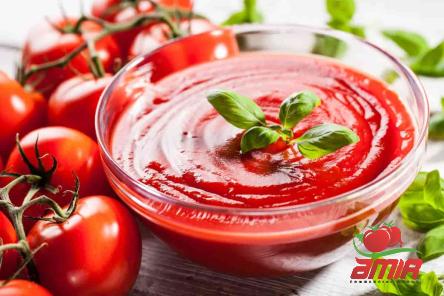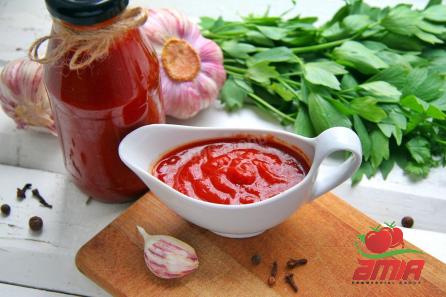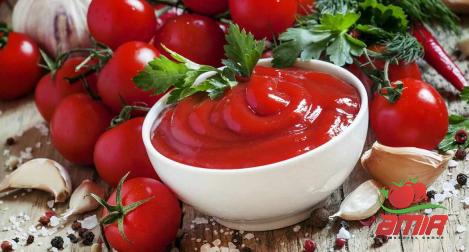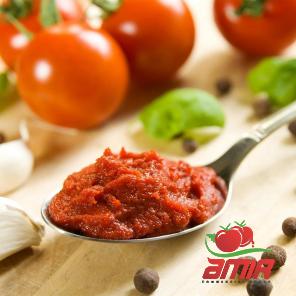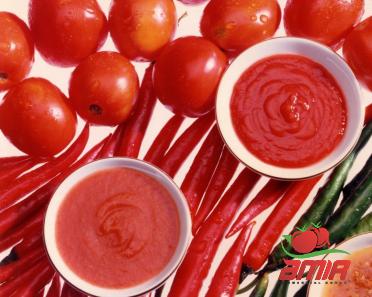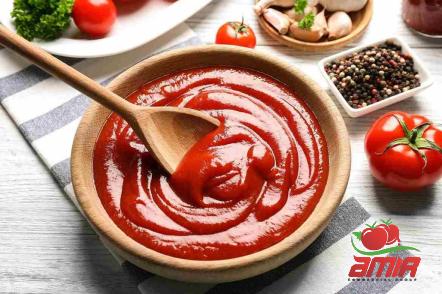commercial tomato paste and tomato sauce
Tomato-based products such as tomato sauce, tomato paste, and puree are considered as commonly used commercial food products in each country
Tomato paste is simply tomatoes that have been condensed
It is, in fact, nothing more than tomatoes that have been reduced in volume by cooking, having the seeds and skins removed by straining, and then having the tomato pulp further reduced in volume till it attains the consistency of paste
Raw tomatoes have a lot of bright acidity and umami flavor, and once all of that bothersome water has been boiled out, the result is packed with the stuff
Tomatoes have a lot of bright acidity and umami flavor in their raw condition
As is the case with the majority of concentrated substances, a small amount can go a very long way
Because of this, the cans are far more compact than cans of crushed tomatoes or tomato sauce
Some brands of tomato paste are advertised as being “double-concentrated,” which, as one would expect, indicates that the tomato flavor is considerably more prominent
Just a few ounces of this stuff may really deliver a wallop
There are likely to be savory variants of tomato paste available for purchase at the supermarket
It is recommended that you do not consume any cans of tomatoes that contain any of the following: basil, oregano, garlic, or any of the other typical suspects that are added to the tomatoes
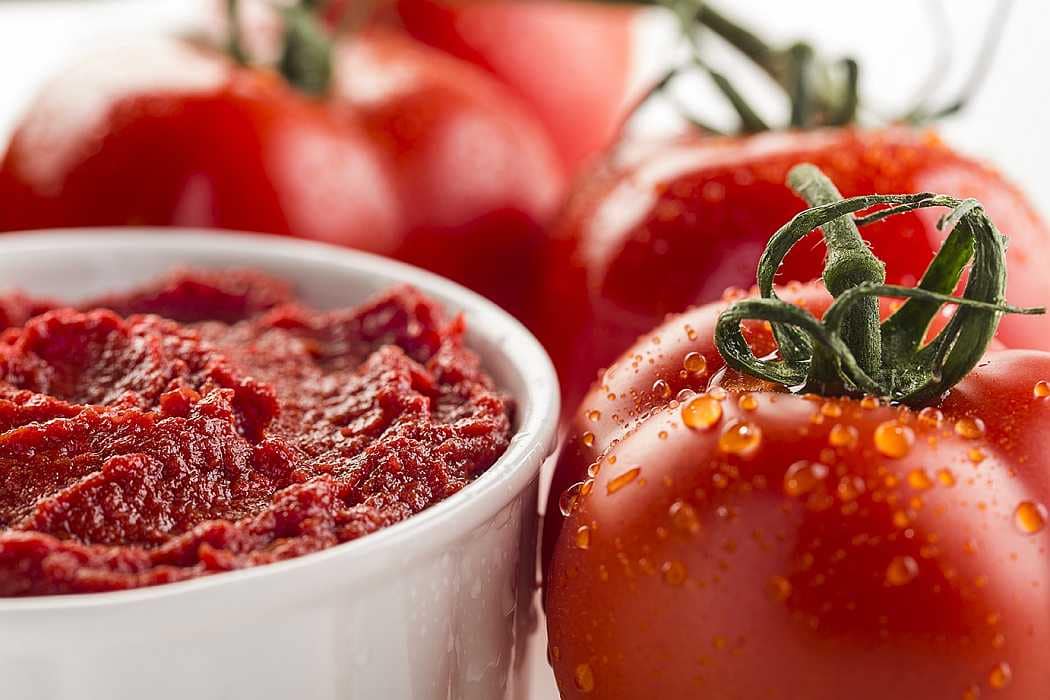
Choose the unseasoned version and season it to taste with salt and pepper on your own
You’ll experience an overall sense of joy in addition to a flavor that is more strong and fresh
(At least, that’s how we see it
) When it comes to the brand, our preference is for Mutti tomato paste, which is available in both a can and a tube form and is doubly concentrated
If you are unable to locate that in the shop, and you do not wish to place an order for it online, a can of Hunt’s will serve the purpose admirably
Tomato paste and tomato sauce have a plethora of distinctions that should be noted
The only thing they have in common is that they are both made out of tomatoes
Tomato paste vs
tomato sauce: what’s the difference? If you’re looking for a concentrated flavor and thicker texture in your dish, you’ll want to use tomato paste instead of tomato sauce
Instead of serving as the primary flavoring agent in a meal like tomato sauce, tomato paste serves more as a foundational ingredient
A teaspoon of tomato paste can go a long way, surprisingly
Tomatoes have been boiled to remove all moisture, resulting in a rich concentration
When it comes to tomato sauce, it is less concentrated
It’s a delicious sauce for pasta, pizza, meatballs, and other dishes because it’s made with boiling tomatoes and a significant amount of liquid
Here are the differences between tomato paste and tomato sauce
Consistency The consistency of tomato sauce and tomato paste is one of the most important variances between the two
There is a lot of liquid in tomato sauce
As soon as you pour it, it will immediately cover the plate you’ve set it on
Instead, tomato paste is a gooey, chunky consistency
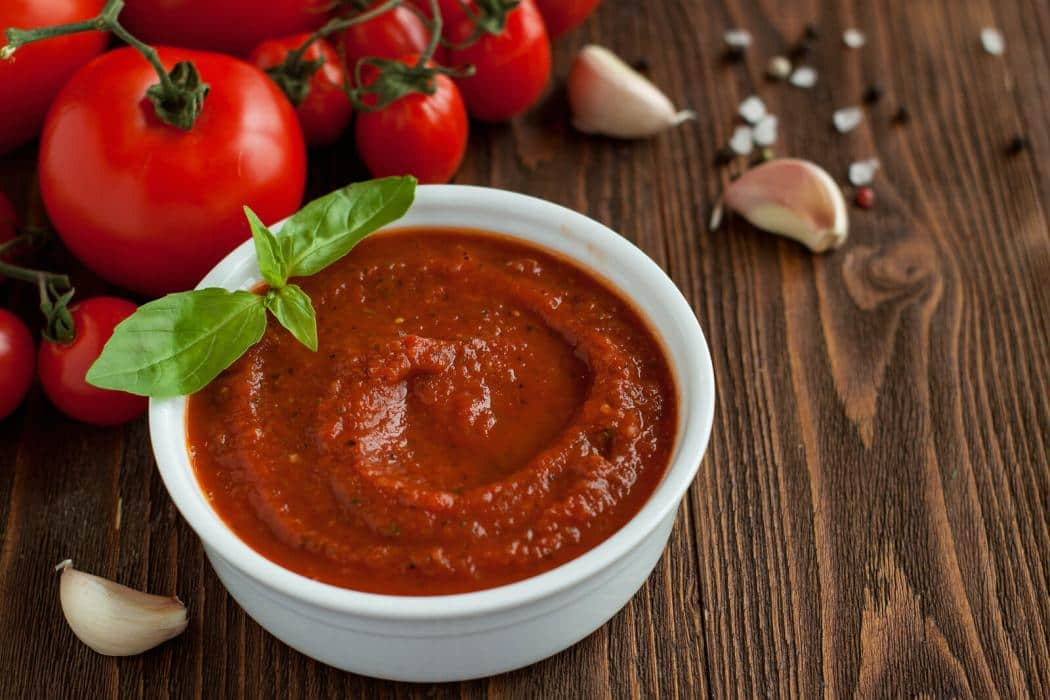
tomato paste
Tomato paste is made from tomatoes that have been simmered for a number of hours, during which time they are reduced to a thick, dark concentrate before being filtered
In many Italian cuisines, tomato paste plays an important role
Tomato sauces and other semi-liquid foods like soups and stews can benefit from its affordable ability to thicken, color, and enhance the flavor of this ingredient
Be careful not to add too much, as this might result in an overbearing tomato flavor or give the sauce an edge that is too acidic
Adding too much tomato puree can also make the sauce more acidic
Cans and tubes are the two common packaging options for tomato paste
When it comes to tomato paste, I find that the no-hassle tubes are far more convenient than the cans
Make sure that tomatoes are the only ingredient listed on the cans and tubes by reading the ingredient labels
If you are looking for a taste that is particularly robust, you should look for imported double-strength tomato concentrate in specialist stores or Italian delicatessens
Tomato paste was traditionally prepared in the homes of people living in Italy and other Mediterranean nations for many years before it became virtually commonly available for purchase in commercial quantities
In order to make tomato paste, the tomatoes are first cooked for a number of hours in order to remove excess water, then they are strained in order to remove the seeds and skin, and finally they are cooked for an additional amount of time in order to reduce them into a thick, concentrated, and nutrient-filled paste
In spite of the fact that many recipes call for tomato paste to be combined with a liquid (often stock, water, or wine), chefs know a little-known trick that allows them to extract a more robust flavor from the item
How? They add the paste to the dish earlier on in the process of cooking it
You can significantly improve the flavor of your dish by allowing the tomato paste to “brown” in the pan and then sautéing it with spices and other aromatic ingredients like fried onions
This will release the tomato paste’s natural flavor
When preparing his world-famous Bolognese sauce, New York City chef Geoffrey Zakarian, who is also a co-owner of The Lambs Club, always lets the tomato paste stew for a few minutes before using it
As Zakarian adds, “You simply want to make sure that it’s cooked through,” and he goes on to say that this process typically takes less than five minutes
The pan should then be deglazed with wine
The sugars are caramelized using this procedure, which results in [the sauce] having a smoother texture and a sweeter flavor
You may also freeze leftover tomato paste in blobs the size of a tablespoon; the thick, acidic paste will rapidly melt in a hot skillet and have the same effect as fresh tomato paste

tomato sauce
Tomato sauce is a culinary sauce that is commonly used as a base for various types of sauces in the majority of countries
The most basic form of tomato sauce is a raw sauce served at room temperature, like the Italian checca sauce
Other sauces, such as the Italian arrabbiata sauce or the marinara sauce, are also prepared during this step
Because sauces made from sauces made from juicier tomatoes tend to be more watery, most chefs opt for meatier, more flavorful varieties of tomatoes, such as plum tomatoes
Tomato sauce can be purchased in jars or cans in supermarkets
Additionally, tomato sauce is frequently bottled at home and stored in jars or bottles
In spite of the fact that most people think of it as a vegetable, the tomato is actually a fruit
Since tomatoes originated in the New World, it wasn’t until around the 1600s that chefs in Europe and Asia began incorporating them into their own cuisines
Italy was one of the first countries to employ tomato sauce, particularly in southern Italy, where it continues to be a highly popular pasta dressing
This is especially true in southern Italy
There are a few different approaches to preparing tomato sauce
Checca is an uncooked sauce typical of Italy that is quite comparable to salsa
The chef minces the tomatoes into very small pieces before combining them with a variety of other components, such as olive oil and seasonings like basil
There is also the option of using tomato paste, which can be diluted with water
Cooking tomatoes that have been peeled and chopped in a pan until they achieve the correct consistency is the most popular method
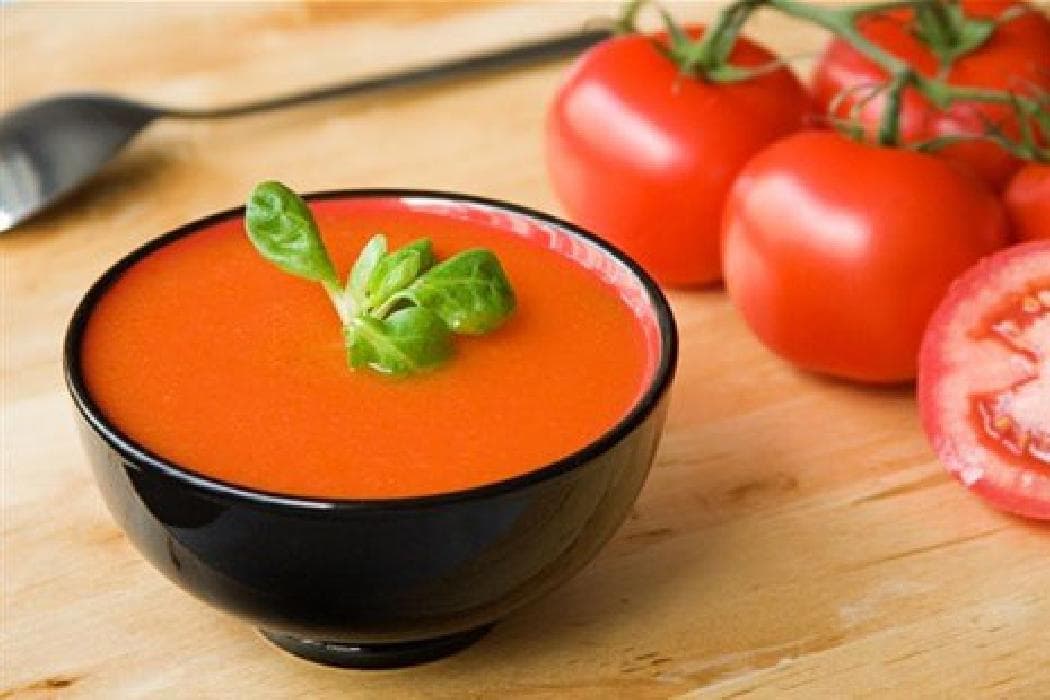
commercial tomato paste
Tomato paste is one of the most significant commercial food products that has an important role in food industry
Tomatoes Used in the Most Common Types of Paste: Amish Paste The Amish Paste tomato is a wonderful heirloom variety that is well known and widely utilized, and its name suggests that it can be processed into a paste
The Amish Paste tomato is a plum tomato with a robust flavor and very few seeds compared to other varieties
The tomato paste you make at home with these tomatoes is sure to be delicious, but you can also use them in a variety of other recipes
This particular variety of tomato works wonderfully when mashed into a sauce, cut into quarters for use in salads, and sliced for use in sandwiches
Roma It’s safe to say that Roma tomatoes are the most prevalent type of plum tomato that can be purchased at your neighborhood grocery shop
Because it is a plant that produces a significant amount of tomatoes, it is an excellent candidate for processing in large batches
This particular variety of tomato has thick walls that are packed with meat and very few seeds or juice
Because of these qualities, as well as the fact that Roma Tomatoes are very simple to locate, they are among the most widely used paste tomatoes
San Marzano Because of its sweeter and less acidic flavor, the San Marzano tomato, which is an heirloom variety, has been gaining favor in recent years
In comparison to tomatoes of the plum type, this Italian kind of tomato has a more elongated and pointed shape
The San Marzano tomato, much like the other types of paste tomatoes, has a greater amount of meat, fewer seeds, and almost no fluid
Because of the high quality of these tomatoes, finding them and paying a reasonable price for them may be more difficult
Regardless of the variety of tomato you decide to grow or purchase, you should only consume tomatoes that are both recent harvests and free of any defects
You want the tomato paste you make to be produced from tomatoes that are fully ripe and vibrant in color
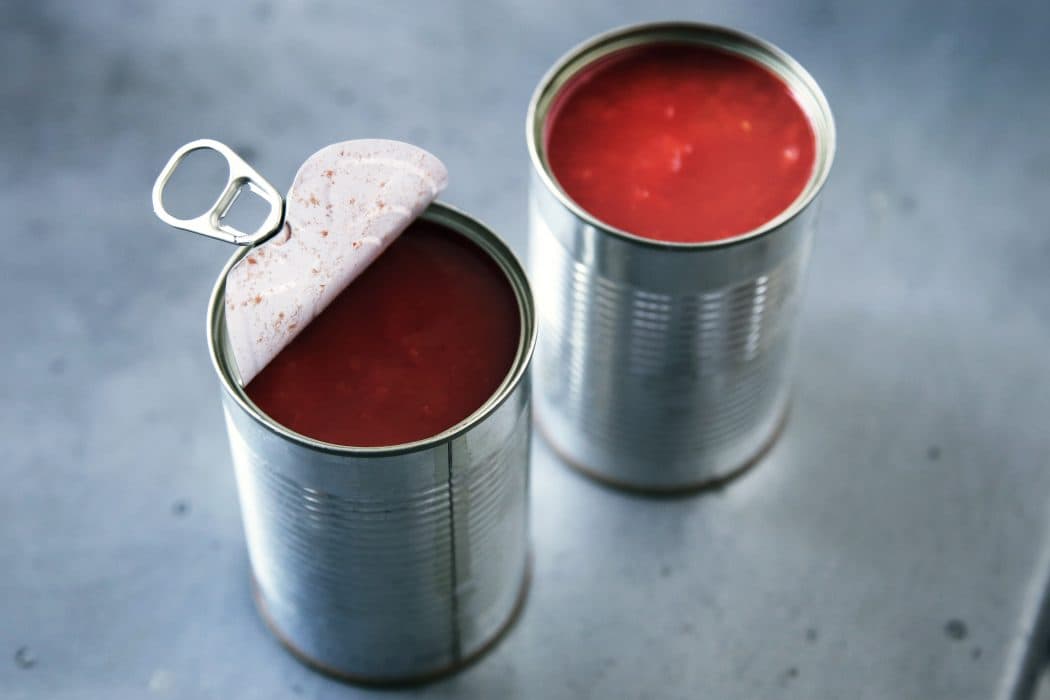
commercial tomato sauce
Tomato sauce is regarded as a significant commercial food product that is commonly traded in many countries
It is noted that tomato sauce has many different uses both in restaurants and in everyday eating habits
Ketchup, sometimes known as catsup, is a condiment that is quite popular in various countries and is one of the most well-known varieties of tomato sauce
Other popular sauces are used to top pasta, such as the arrabbiata sauce, which is analogous to the tomato sauces used in the old South American cuisine
This sauce gets its fiery flavor from the addition of dried chili pepper flakes during the cooking process, which gives it the name “Arrabbiata,” which is the Italian word for “angry
” Tomato sauces are the foundation of many cooking sauces, and cooks frequently create their own unique flavor profiles to give the sauces a personal touch
Due to the absence of refrigeration aboard early ships, sailors came up with the idea for marinara sauce
The strong acid content of the tomato preserved the freshness of the sauce
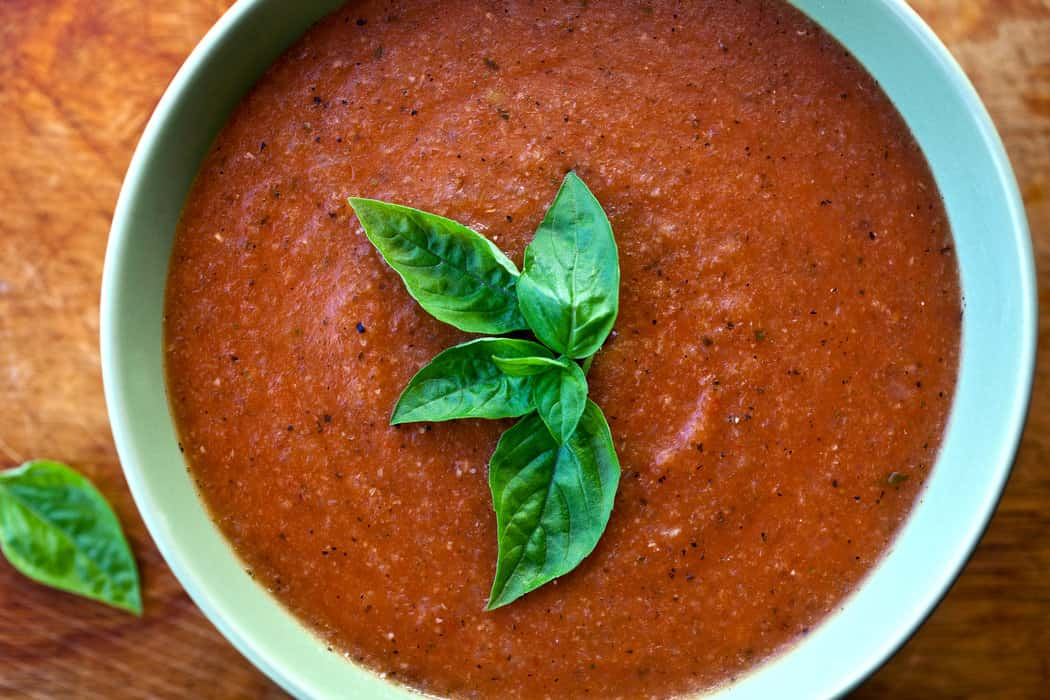
The practice of storing low-acid tomato sauces at room temperature rather than in the refrigerator poses a health risk because it takes bacteria only minutes to start reproducing once a product reaches that temperature
The majority of condiments that are made with tomato-based ingredients, such as ketchup and steak sauce, have acid added to them in order to maintain their freshness and provide flavor
The fact that ketchup is considered a condiment while sauces are typically essential components of meals is one of the most obvious distinctions between ketchup and tomato sauce
Even though tomatoes form the backbone of the sauces, cooks will often add additional veggies like zucchini, carrots, and onions to the mix
People in various parts of the country refer to them as gravies
Tomato sauces are used as condiments in some regions, such as southern Africa and Great Britain, and are comparable to ketchup in flavor
